(Previously published, with some revisions)
Here it comes again. This holiday weekend we'll see a lot of media coverage of Martin Luther King, Jr. But we'll hear very little about who he really was - a brave and visionary leader whose vision is as relevant today as ever.
Dr. King's life and legacy stand as a challenge to an entrenched society of privilege and injustice. Here are nine quotes that reflect that legacy.
1. "True compassion is more than flinging a coin to a beggar; it is not haphazard and superficial. It comes to see that an edifice which produces beggars needs restructuring." Where Do We Go From Here? August 1967 speech.
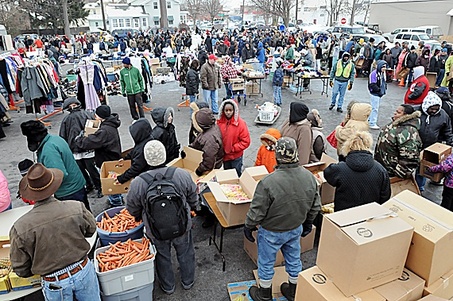
"Bain Capitalism" - a k a "vulture capitalism" - didn't happen out of nowhere. It was made by politicians. It should be un-made by politicians. The system is the problem and it needs to change.
A long list of corporations and banks enriched itself by triggering the events that led to the Great Recession, and many of them took Federal bailout money when it happened. Each of them has a Corporate Social Responsibility policy, designed to show they're good citizens who give back to the community.
And each of them has a fleet of lobbyists working to protect their privileged status and tax benefits. We're seeing their handiwork in the actions of our new Congress.
Meanwhile the poverty rate, which had been declining, started to rise again in 2000. That year it stood at 11.3 percent, but by 2009 the Census Bureau reported that it had climbed back to 14.3 percent. At last count, 45.3 million Americans lived in poverty, more than 15 percent of the population. More than 16 million of them are children. The poverty rate for children stood at 19.9 percent in 2013. As the Census Bureau explains, poverty rates have declined slightly but remain statistically unchanged from recent highs.
(photo by Jeff Schrier, Saginaw News)
2. "We must develop a federal program of public works, retraining, and jobs for all - so that none, white or black, will have cause to feel threatened ... There is nothing except shortsightedness to prevent us from guaranteeing an annual minimum and livable income for every American family." Where Do We Go From Here?
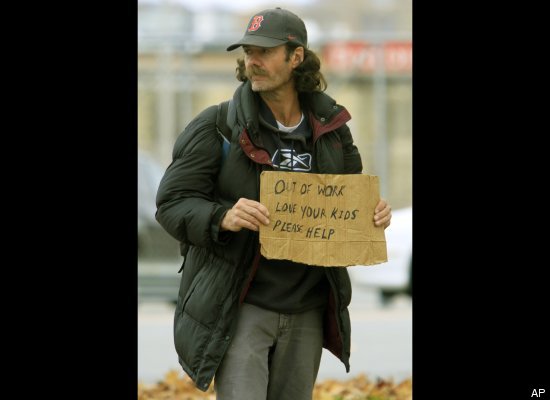
The unemployment rate won't return to normal for years -- not unless there is a concentrated program of government-funded, short-term job creation. Instead, budget cutbacks are forcing layoffs of government employees, especially at the state level. Previous jobs proposals were weakened with ineffective tax breaks for businesses, but still would have provided some jobs. Yet even those moderate proposals were rejected by Republicans.
What did Dr. King say about jobs?
"The unemployed, poverty-stricken white man must be made to realize that he is in the very same boat with the Negro. Together, they could exert massive pressure on the government to get jobs for all. Together they could form a grand alliance. Together, they could merge all people for the good of all."
Labor-force participation is still low, even for people who are still of working age. Some sectors of the population still suffer from high, prolonged joblessness.
We deserve better.
3. "A true revolution of values will soon look uneasily on the glaring contrast of poverty and wealth." Beyond Vietnam: A Time to Break Silence, April 1967 speech.
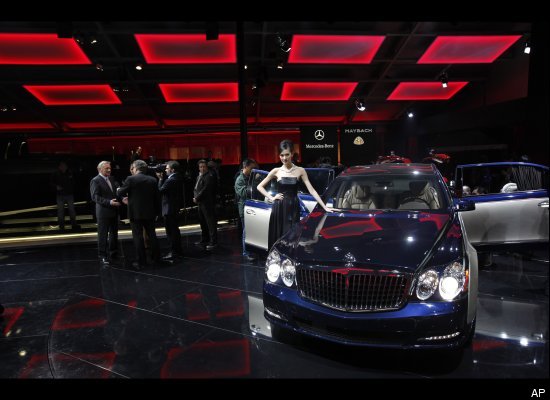
(Daimler Maybach sedan, manufacturer's suggested retail price $366,000 - plus delivery and other charges)
The gap between the wealthy and the rest of society is greater now than it was when Dr. King spoke those words in April, 1967. The progress we made toward reducing poverty is being eroded as the result of increasingly maldistributed wealth, Wall Street's reckless gambling, and the cost of the Great Recession that followed. Wall Street's doing fine, now that it has been rescued by the American public. But the American public isn't doing so well.
Income inequality in this country is worse than it is in Egypt. As economist Edward Wolff explains, wealth inequality has more than doubled in this country since the mid 1970s. The GINI coefficient, which measures economic inequality, has risen nearly 20 percent since it was first measured in this country (coincidentally, the same year Dr. King's speech was given.)
4. "The profit motive, when it is the sole basis of an economic system, encourages a cutthroat competition and selfish ambition that encourages men to be I-centered rather than thou-centered." Where do we go from here?
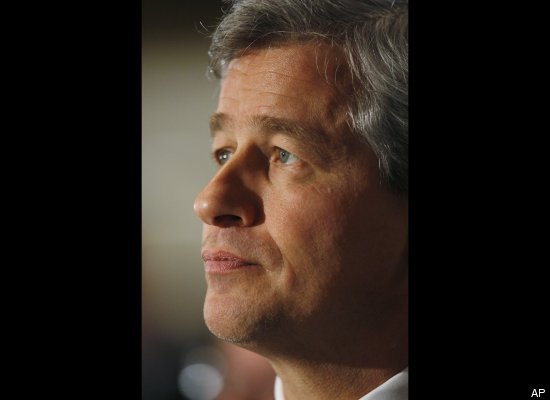
The I-centeredness of American business leaders has reached a level Dr. King could not have dreamed of. Seven short years after Wall Street was rescued by the American people, the depth of its self-absorption and self-pity continues to be a miracle of human indulgence. It reflects a self-centeredness so profound that its leaders are in danger of morally imploding, spiritual black holes in an amoral universe.
Case in point: Steven Schwartzman, the hedge fund manager we mentioned earlier, who felt that paying taxes on his billions' at a laborers' rate was the moral equivalent of the invasion of Poland.
Or Goldman Sachs CEO Lloyd Blankfein, who said "We're very important ... we do God's work." (Reverend King might beg to differ.)
Or erstwhile Democrat Daniel S. Loeb comparing himself and his fellow investors to an oppressed minority, victims of tyranny (a "tyranny" that rescued them and asked nothing in return), and even underpaid workers.
Or John Coulson, head of the Mortgage Bankers Association, lecturing underwater homeowners not to walk out on their mortgages - even as his organization was walking away from a headquarters building they lost nearly forty million dollars on in two short years.
Or the King of the Emo Executives, Jamie Dimon, pouring out his hurt feelings to the New York Times - "My Achilles heel?" Jay-Z rapped, "Love! I don't get enough of it!" - even as his bank was on its way to earning record profits in a time of record unemployment (and as it continued to engage in unscrupulous business practices).
We need to strengthen bank regulation, not weaken it - and these bankers should be ashamed of themselves.
5. "Lamentably, it is an historical fact that privileged groups seldom give up their privileges voluntarily. Individuals may see the moral light and voluntarily give up their unjust posture; but, as Reinhold Niebuhr has reminded us, groups tend to be more immoral than individuals." Letter From a Birmingham Jail, April 1963 open letter.
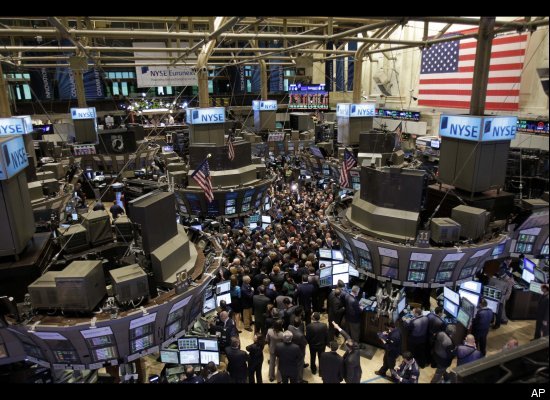
Tea Party supporters may have populist impulses. But the movement itself was created with an outburst by an investor-turned-television commentator who was cheered on in his rantings by traders on the Chicago Board of Mercantile Exchange. And the movement's been funded by wealthy interests ever since.
After it was bailed out, Wall Street immediately redoubled its lobbying efforts. Banks were able to blunt the most effective and urgently needed financial reforms, like breaking up banks that are "too big to fail." Now they're hard at work eliminating the reforms that were passed, with the help of the Republican Congress they helped get elected.
The situation has gotten so bad that the International Monetary Fund - hardly a leftist organization - issued a report showing a strong correlation between bank lobbying and risky bank behavior in the United States.
6. "An unjust law is a code that a numerical or power majority group compels a minority group to obey but does not make binding on itself. This is difference made legal." Letter From a Birmingham Jail
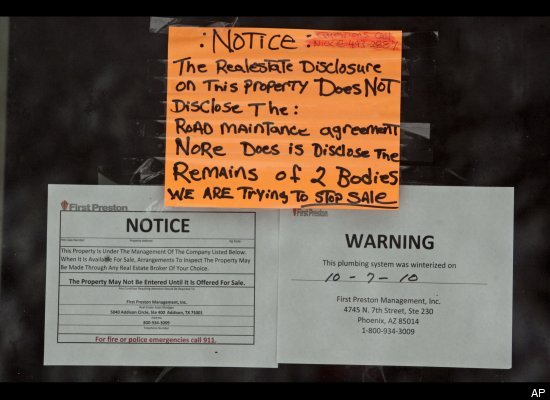
Foreclosure settlement deals gave banks a free pass for widespread lawbreaking. Republicans -- and too many Democrats -- have displayed an unseemly eagerness to serve bankers' interests and rescue them from the consequences of their own disregard for state and local laws.
More than 1,000 people were convicted after savings and loan scandal of the 1980s. The financial crisis of 2008 was driven by fraudulent behavior by America's largest banks. How many big-bank executives were convicted afterwards? None. But then, they weren't even prosecuted.
The old and shameful truth still stands: There is one law for the powerful, and another for the people.
That must change.
7. "When machines and computers, profit motives and property rights are considered more important than people, the giant triplets of racism, materialism, and militarism are incapable of being conquered." A Testament of Hope (posthumously published essay).
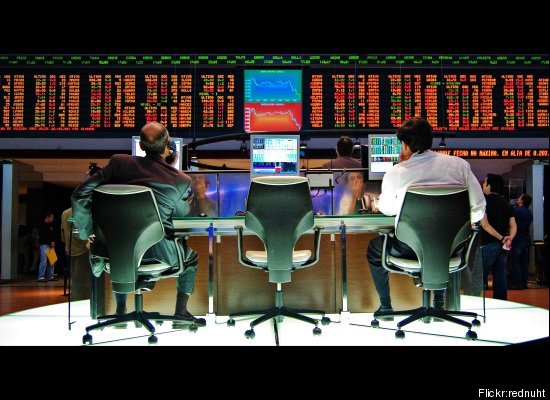
Banking has become divorced from reality. When the financial sector can enrich itself with speculation alone, it no longer needs to fund concrete business activities. That's why statements like "Main Street and Wall Street rise and fall together" are 100 percent incorrect: Those two geographies have never been more distant from one another.
Robo-trading. Flash crashes. Databases where mortgages are traded like gambling chips. Incentives to lie, and to hide the truth. Banks are "automated greed factories." The most human thing about banking in the 21st Century is its greed. Meanwhile the Silicon Valley is putting a new-tech gloss on very old-school behaviors like greed, rule-breaking, and monopolistic power.
Is racism conquered? When infant mortality for African Americans in 2.5 times that of whites? With these disparities in poverty and employment?
Militarism? The Cold War is over and the Defense budget continues to expand. We didn't shift military spending when the world changed—we added to it. The Homeland Security Complex is enormous, growing—and looking for targets of surveillance.
As for conquering materialism, how many people even want to anymore? Dr. King's "three triplets" still walk the earth.
8. "There is also the violence of (African Americans) having to live in a community and pay higher consumer prices for goods or higher rents for equivalent housing than are charged in white parts of the city." A Testament of Hope
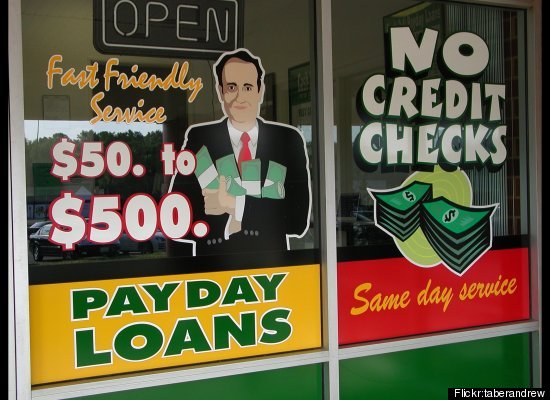
Payday lenders disproportionately exploit minorities and lower-income communities. Big banks (like Jamie Dimon's) make it harder for working minorities to get credit through normal channels. Then they help finance usurious payday lenders who step in and offer credit at outrageous rates designed to trap the borrower in a cycle of debt, so that a "one-time" fee for borrowing against next week's paycheck turns into a revolving loan that costs the borrower 300-400 percent in interest per year.
As a theologian and scholar, Dr. King would recognize a practice that was condemned as sinful in both the Old and New Testaments.
Big banks also back auto loans, which have been shown to charge more to African Americans than whites. HSBC Bank settled when it was found to have been charging minority customers more than others.
When it comes to banks, Dr. King would certainly recognize the United States of the 21st Century. And he wouldn't be surprised to learn that the government is still more inclined to rescue banks than force them to change. We can bet he would encourage citizens to take action -- now.
9. "Congress appropriates military funds with alacrity and generosity. It appropriates poverty funds with miserliness and grudging reluctance. The government is emotionally committed to the war. It is emotionally hostile to the needs of the poor." Domestic impact of the war in America, November 1967 speech..

What's changed since these words were spoken? Politicians count every penny that helps the American people, then go on military spending sprees.
The economic populism of the American people is not reflecting by the warped values which prefer defense spending to investment in human needs and economic growth.
Dr. Martin Luther King Jr. dedicated his life to fundamental social change. That is the legacy we should reflect upon this weekend. Don't think of it as a "holiday." Think of it as a call to action.

